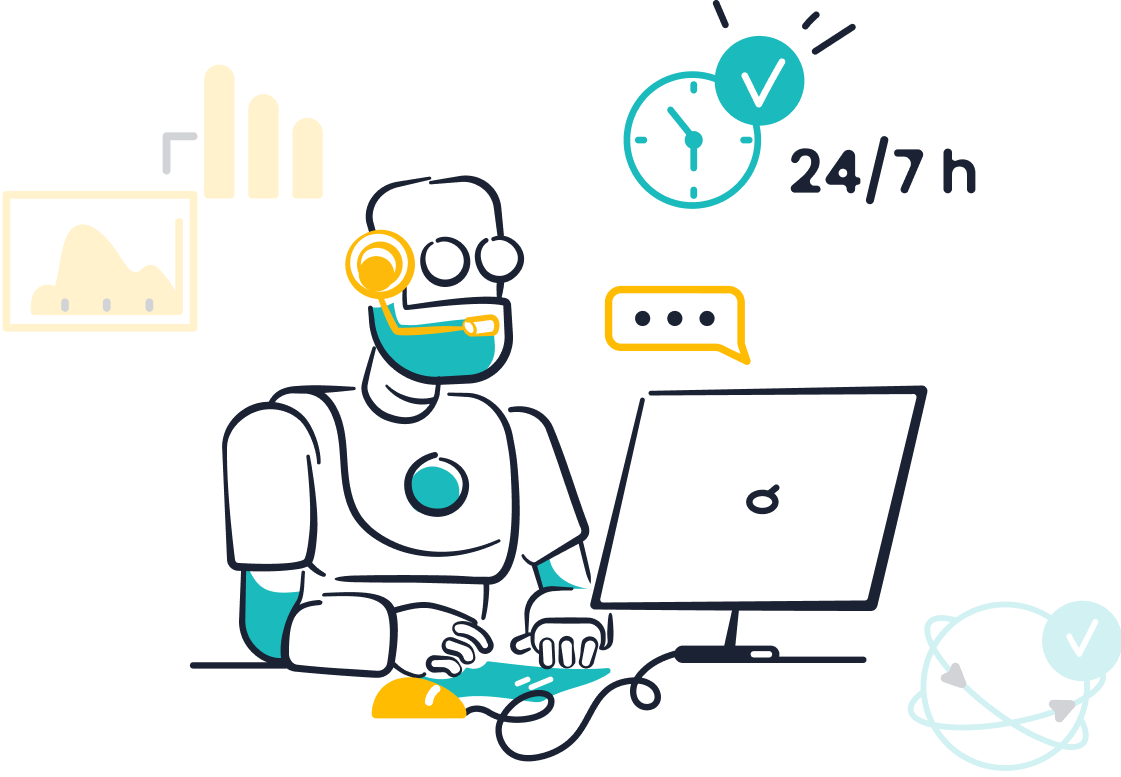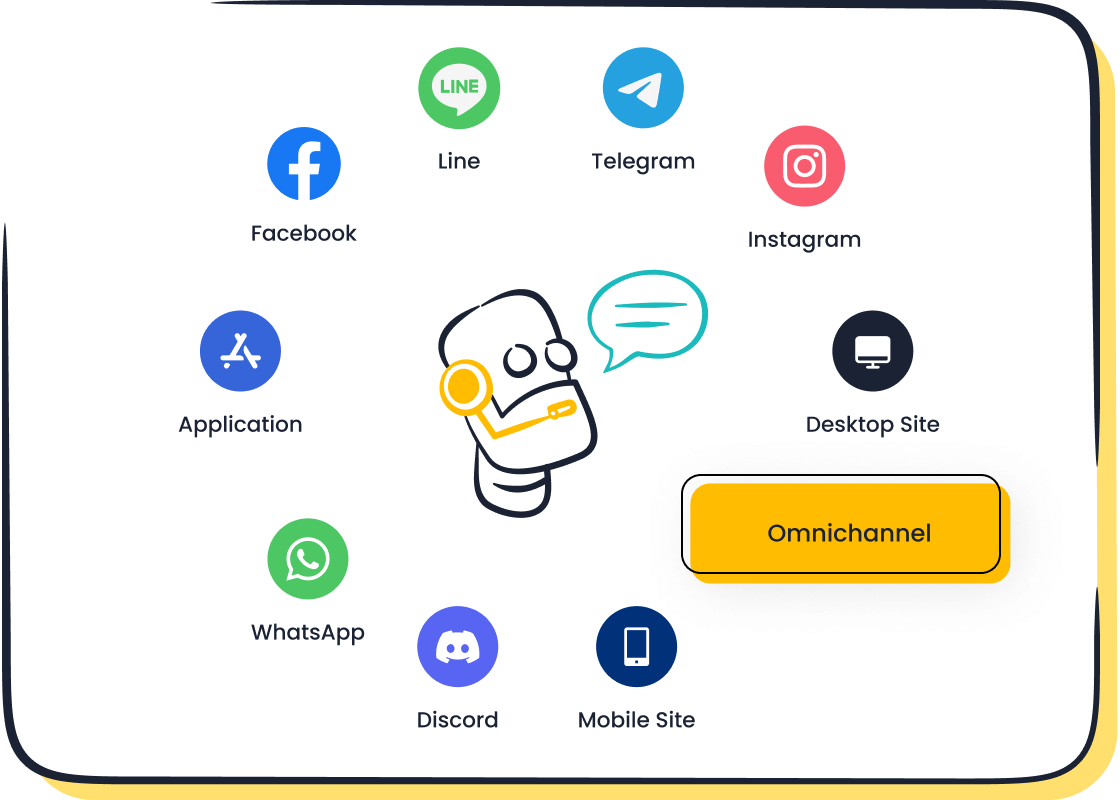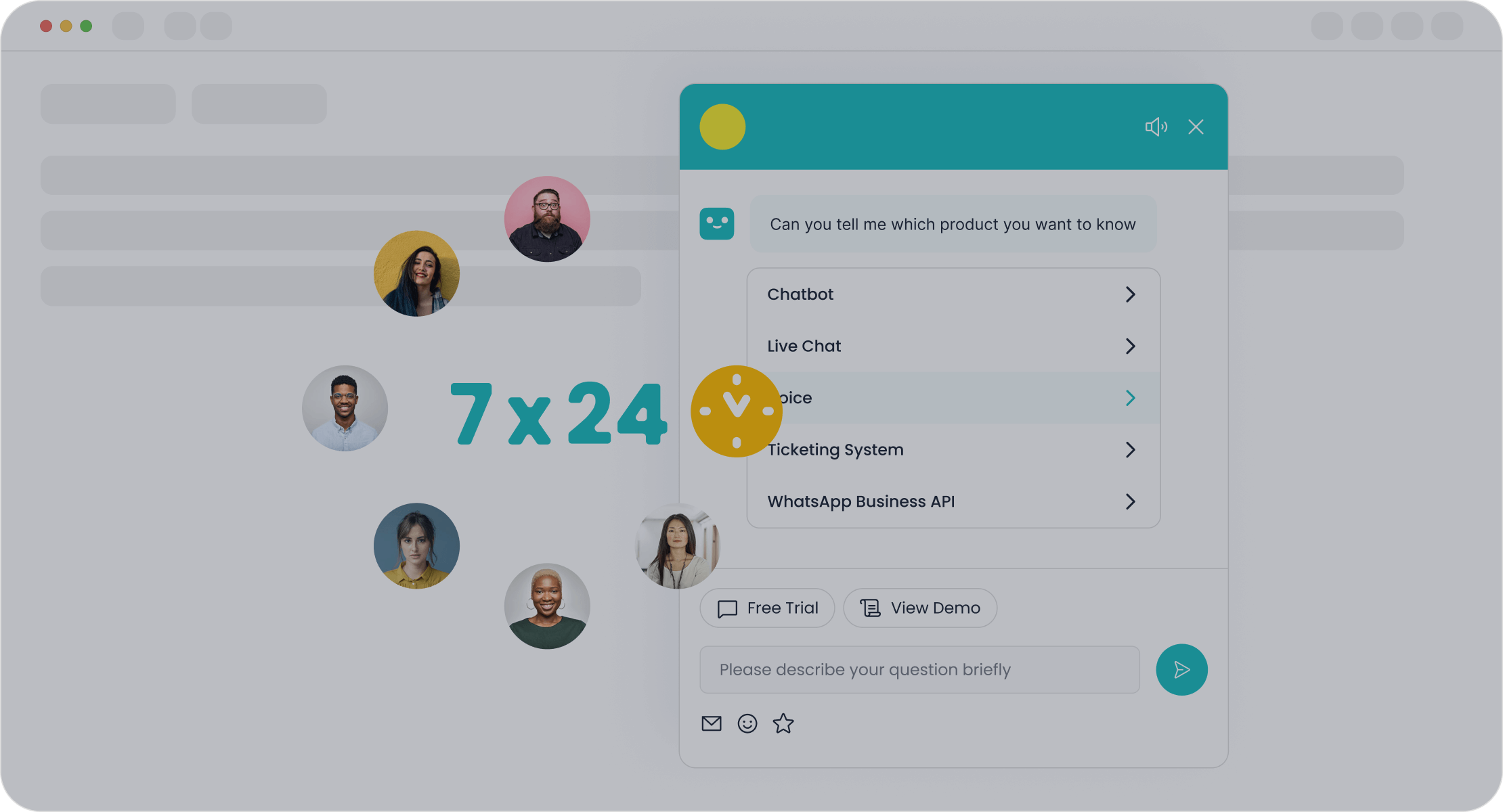AI-Powered Customer Service Automation Tools Compared

AI is revolutionizing customer service, making it faster, smarter, and more efficient. Businesses adopting AI-powered customer service solutions have seen remarkable growth. For instance:
- The AI market is projected to hit $407 billion by 2027.
- Companies using AI report a 25% boost in customer satisfaction.
- The number of businesses employing AI has surged by 300% in five years.
Choosing the right automation tool is essential. Tools like Sobot help automate customer service, reduce costs, and improve customer satisfaction. By comparing customer service tools, you can find solutions tailored to your needs, ensuring seamless handling of customer inquiries and long-term success.
Benefits of AI-Powered Customer Service Tools

Automate customer service for faster response times
AI-powered tools allow you to automate customer service, ensuring faster response times. Chatbots and voice assistants provide immediate replies 24/7, eliminating delays. For example, AkzoNobel reduced its average response time by 70 minutes using AI automation. Smart routing systems also match customers with the right agents based on their queries, improving efficiency.
| Statistic Description | Value |
|---|---|
| Drop in first response times | 37% |
| Speed of ticket resolution | 52% faster |
These tools handle routine inquiries, freeing up agents to focus on complex issues. This improves productivity and ensures your customers receive timely assistance, enhancing their overall experience.
Cost savings through automated customer service solutions
Automated customer service solutions significantly reduce operational costs. Chatbots, for instance, can lower customer service expenses by up to 30%. In the U.S. alone, businesses could save $23 billion annually by adopting automation.
By automating repetitive tasks, you can reduce the need for additional agents, saving resources. AI chatbots operate round the clock, triaging queries without human intervention. This not only cuts costs but also ensures consistent service quality.
Enhanced customer satisfaction with AI chatbots
AI chatbots play a crucial role in improving customer satisfaction. They offer personalized interactions, quick resolutions, and 24/7 availability. Sephora, for example, uses AI chatbots to provide tailored product recommendations, enhancing customer engagement.
| Metric | Description | Importance |
|---|---|---|
| Customer Satisfaction (CSAT) Score | Measures satisfaction with chatbot interactions. | Indicates the chatbot's success in creating a positive attitude. |
| Net Promoter Score (NPS) | Assesses customer loyalty and likelihood to refer the service. | High NPS indicates customer happiness with chatbot engagements. |
AI chatbots also collect valuable data, helping you analyze customer behavior and optimize services. This ensures a seamless customer experience, fostering loyalty and long-term satisfaction.
Scalability to support business growth
Scalability is a critical factor for businesses aiming to grow while maintaining excellent customer service. Automated customer service solutions provide the flexibility to handle increasing customer inquiries without compromising quality. These tools adapt to sudden spikes in demand, ensuring high-priority issues receive immediate attention. For example, Azul Airlines implemented conversational AI, reducing wait times by 84% and increasing issue resolution by 59%. Similarly, SKY Cable improved agent efficiency by 35% using an AI chatbot.
Automated systems also help businesses prioritize support tickets effectively. This ensures that your team can focus on complex cases while routine inquiries are resolved automatically. Betcris, a leading gaming company, achieved a 30-35% containment rate for inquiries with an AI virtual assistant. This not only enhanced customer satisfaction but also allowed the company to scale its operations seamlessly.
By automating repetitive tasks, you can allocate resources more efficiently. This scalability ensures your business can grow without the need for proportional increases in staff or infrastructure. Whether you’re managing seasonal demand or expanding into new markets, customer service automation tools provide the support needed to maintain a consistent customer experience.
Improved operational efficiency and agent productivity
AI-powered customer service tools significantly improve operational efficiency and agent productivity. These tools automate repetitive tasks like data entry, freeing agents to focus on high-value interactions. For instance, AI chatbots handle routine queries, reducing the workload on your team and allowing them to address complex issues more effectively.
| Improvement Area | Description |
|---|---|
| Automation of Repetitive Tasks | AI handles routine tasks, enabling agents to focus on complex inquiries. |
| Real-Time Data Analysis | AI identifies trends and insights for better decision-making. |
| Personalized Customer Interactions | AI tailors responses based on customer behavior, enhancing satisfaction. |
| Training New Agents | AI provides on-the-job guidance, ensuring consistent service quality. |
| Real-Time Agent Help | AI offers suggestions during interactions, reducing handling time. |
AI also provides real-time insights, helping you track performance metrics and identify areas for improvement. This ensures your team remains efficient and well-trained. Additionally, automation streamlines processes, cutting down on redundant tasks and improving overall productivity. By leveraging these tools, you can enhance the customer experience while boosting your team’s effectiveness.
Key Features to Compare in Customer Service Software
AI capabilities, including chatbots and natural language processing
AI capabilities are essential when evaluating customer service software. Chatbots powered by AI can handle routine queries, reducing response times and improving accuracy. Natural language processing (NLP) enhances these chatbots by understanding customer intent and sentiment, leading to more personalized interactions. For example, multilingual support allows you to engage customers in their preferred language, creating a better experience.
| Benefit | Description |
|---|---|
| Improved Accuracy | Enhanced ability to understand customer intent and sentiment, leading to more accurate responses. |
| Reduced Response Times | Faster resolution of customer issues, improving overall efficiency. |
| Cost Savings | Significant reductions in operational costs for call centers and analytics departments. |
| Higher Bot Resolution Rates | Increased percentage of customer inquiries resolved by bots, minimizing the need for human intervention. |
| Multilingual Support | Capability to engage customers in their preferred language, enhancing user experience. |
AI-powered chatbots also provide valuable data for analyzing customer behavior. This helps you optimize your services and improve customer satisfaction.
Integration with existing systems and omnichannel support
Integrations with other tools and omnichannel support are critical for seamless customer service. A unified platform simplifies the process for both customers and agents. It ensures all communication channels, such as chat, email, and social media, are effectively managed.
Companies often need to update legacy systems to support omnichannel experiences. Eliminating data silos is crucial for providing a seamless customer journey.
Investing in omnichannel support software allows you to engage customers across all mediums they use. For instance, integrating customer service software with platforms like Salesforce or Shopify ensures smooth operations. This approach enhances the overall customer experience and boosts customer satisfaction.
Customization options for business-specific needs
Personalization and customization options make customer service software adaptable to your unique requirements. Custom solutions allow you to integrate features that cater to your business needs. For example, customizable dashboards help you tailor workflows, improving usability and focus.
Automation tools streamline repetitive tasks, enabling faster response times. Self-service portals empower customers to find answers independently, reducing the workload on your team. These features not only improve customer satisfaction but also enhance operational efficiency.
By choosing software with robust customization options, you can scale your operations as your business grows. This ensures your customer service tools remain effective and aligned with your goals.
Analytics and reporting for performance insights
Analytics and reporting are essential features of customer service software. They provide you with the tools to measure performance and make informed decisions. Real-time insights allow you to monitor ongoing operations, helping you identify and resolve issues quickly. Historical insights, on the other hand, give you a broader view of trends and patterns over time. This combination ensures you can continuously improve your customer service automation strategies.
| Feature | Benefit |
|---|---|
| Real-time insights | Provides immediate data to enhance decision-making. |
| Historical insights | Offers a comprehensive view of performance over time. |
| Tailored reporting | Allows customization to meet specific business needs. |
Customer service software often includes dashboards that display key metrics. These dashboards use generative AI to analyze customer interactions, offering valuable insights. For example, they can highlight areas where automated responses are most effective or where live chat platforms need improvement. By comparing real-time and historical data, you can optimize your self-service portals and other customer service tools.
Analytics also help you track customer experience metrics like satisfaction scores and resolution times. This data enables you to refine your automation tools and deliver better service. With tailored reporting, you can customize insights to align with your business goals, ensuring your strategies remain effective as your company grows.
Multichannel support for seamless customer interactions
In today’s digital marketplace, customers expect seamless interactions across multiple channels. Multichannel support in customer service software ensures you can engage with customers wherever they are—whether through live chat platforms, email, or social media. This unified approach enhances the customer experience by providing consistent messaging and personalized interactions.
A seamless customer experience fosters loyalty and encourages customers to become brand advocates.
Multichannel customer service automation allows you to deliver value across various touchpoints. For example, integrating live chat platforms with self-service portals ensures customers can find answers independently or escalate issues when needed. This flexibility improves convenience and satisfaction.
Engaging customers across different channels also strengthens relationships. Loyal customers are more likely to recommend your brand, boosting your reputation. In ecommerce, multichannel support has become a standard, enabling businesses to reach customers on their preferred platforms. By adopting customer service tools with robust multichannel capabilities, you can ensure a consistent and high-quality experience for every interaction.
Comparative Analysis of Top Customer Service Automation Tools
Zendesk: Features, strengths, and use cases
Zendesk stands out as a robust customer service software offering a wide range of features. Its ticketing system efficiently manages customer inquiries, ensuring no request goes unanswered. The platform also includes messaging and live chat, enabling real-time communication with customers. Zendesk’s help center provides a centralized resource for self-service, reducing the workload on agents.
One of Zendesk’s key strengths is its Answer Bot, an AI-driven tool that resolves common queries automatically. This feature enhances customer satisfaction by providing instant solutions.
Zendesk supports multilingual interactions, making it ideal for businesses with a global presence. Its advanced data privacy measures ensure customer information remains secure. Companies like Shopify and Slack have leveraged Zendesk to streamline their customer support automation processes. However, the platform may require training for optimal use, especially for teams new to customer service automation.
Freshdesk: Key functionalities and benefits
Freshdesk is a user-friendly customer service software designed to simplify support operations. Its intuitive interface allows you to manage tickets, track emails, and resolve issues efficiently. The platform’s self-service portal empowers customers to find answers independently, reducing the need for agent intervention.
Freshdesk excels in tracking performance metrics like resolution times and customer satisfaction scores. For example, its ticket resolution rate highlights how quickly your team addresses customer concerns. Businesses using Freshdesk often report higher Net Promoter Scores (NPS), reflecting improved customer experience.
Freshdesk’s automation tools streamline repetitive tasks, allowing your team to focus on complex issues. This approach not only enhances productivity but also ensures consistent service quality.
While Freshdesk offers excellent email tracking, its support ticket management may not suit businesses with extensive requirements. Despite this, it remains a popular choice for small to medium-sized enterprises seeking reliable customer service automation.
Intercom: Unique selling points and applications
Intercom takes a conversational approach to customer service automation. Its advanced chatbots learn from customer interactions, providing personalized responses that improve over time. These chatbots also offer clear escalation options, ensuring complex issues reach the right agents.
“Intercom offers instant service, exceptional experiences, and AI-powered tools that enhance agent productivity and customer satisfaction.”
The platform integrates seamlessly with popular tools like Zendesk and Facebook, making it versatile for various industries. Intercom’s reporting features provide actionable insights, helping you refine your customer service strategies. According to the Customer Service Trends Report 2023, 77% of support leaders plan to invest more in self-serve support, highlighting the growing importance of tools like Intercom.
Intercom’s adaptability ensures it meets changing customer needs. By leveraging customer feedback, you can continuously improve your automation strategies. This makes Intercom a valuable asset for businesses aiming to deliver exceptional customer experiences.

Sobot Chatbot: AI-powered automation and omnichannel capabilities
The Sobot chatbot stands out as a powerful customer service software designed to enhance efficiency and improve the customer experience. It uses advanced AI-powered automation to handle routine queries, allowing your team to focus on more complex issues. This approach not only saves time but also ensures faster response times, reducing delays by up to 50%. With its ability to integrate various support channels, the chatbot creates a seamless and harmonious customer journey.
You can rely on the Sobot chatbot to deliver personalized interactions. Its natural language processing capabilities allow it to understand customer intent, providing accurate and tailored responses. This feature improves customer satisfaction by 40%, making it an essential tool for businesses aiming to build loyalty. Additionally, the chatbot supports multiple languages, enabling you to connect with customers worldwide in their preferred language.
The omnichannel capabilities of the Sobot chatbot make it a versatile solution for modern businesses. It integrates with popular platforms like WhatsApp and SMS, ensuring consistent communication across all channels. This feature allows you to manage customer interactions from a unified workspace, improving operational efficiency. For example, companies like OPPO have achieved an 83% chatbot resolution rate by leveraging Sobot’s AI-driven solutions.
The Sobot chatbot also provides valuable analytics. These insights help you track performance, identify trends, and optimize your customer service tools. By automating repetitive tasks and offering real-time assistance, the chatbot boosts productivity and enhances the overall customer experience. Whether you’re a small business or a large enterprise, Sobot’s chatbot adapts to your needs, making it a scalable and cost-effective solution.
Tip: Explore how Sobot’s chatbot can transform your customer support automation strategy by visiting Sobot Chatbot.
Factors to Consider When Selecting a Customer Service Automation Tool
Business size, industry, and specific requirements
Your business size, industry, and unique needs play a crucial role in selecting the right automation tool. Larger companies often require robust customer service software to handle high volumes of inquiries, while small businesses may prioritize cost-effective solutions. Industries like retail and e-commerce benefit from tools offering 24/7 support and self-service portals, ensuring customers can resolve issues anytime.
- Over 90% of businesses with customer experience functions use automation tools, showcasing their importance across industries.
- Automation tools help growing businesses manage increasing workloads without significantly raising costs.
- Small and medium enterprises (SMEs) may face challenges implementing automation due to limited resources.
For example, Sobot’s chatbot provides 24/7 support and multilingual capabilities, making it ideal for businesses expanding into global markets. Its customization options allow you to tailor workflows to meet specific operational needs, ensuring seamless customer interactions.
Budget considerations and pricing models
Budget is a critical factor when choosing customer service software. Pricing models vary widely, from subscription-based plans to pay-as-you-go options. Comparing costs ensures you find a solution that aligns with your financial goals.
| Tool | Pricing Details |
|---|---|
| Microsoft Dynamics 365 | Sales Professional: $65/user/month |
| HubSpot | Starter Customer Platform: $20/user/month |
| Salesforce | Starter Suite: $25/user/month |
| Zoho CRM | Standard: $20/user/month |

Sobot offers scalable pricing, making it accessible for businesses of all sizes. Its solutions help reduce operational costs by automating repetitive tasks, allowing you to allocate resources more efficiently.
Ease of implementation and user-friendliness
An automation tool should be easy to implement and user-friendly. Complex systems can lead to employee resistance and integration issues. Tools like Sobot simplify deployment with no-coding-required setups and intuitive interfaces.
- Automated ticketing systems categorize and prioritize tasks, improving efficiency.
- Training your team ensures they maximize the tool’s capabilities.
- Monitoring performance metrics like response time helps refine automation strategies.
Sobot’s unified workspace consolidates customer data, enabling agents to provide personalized service. This approach reduces workload and enhances collaboration, ensuring customer inquiries are managed effectively.
Tip: Choose a tool that offers ongoing support and training to ensure smooth implementation and long-term success.
Customer support, training, and resources provided
Effective customer support and training are essential when adopting customer service software. These tools often come with a range of resources to ensure smooth implementation and ongoing success. Metrics like average handle time, ticket resolution rate, and customer satisfaction score (CSAT) help evaluate the quality of support and training provided. For example:
| Metric | Description |
|---|---|
| Average response time | Measures how quickly agents respond to customer inquiries. |
| First Contact Resolution | Tracks the percentage of issues resolved during the first interaction. |
| Customer Effort Score (CES) | Evaluates how easy it is for customers to resolve their issues. |
Sobot excels in providing comprehensive support and training. Its no-coding-required setup simplifies deployment, while its intuitive interface ensures ease of use. Businesses also benefit from Sobot's extensive knowledge base, which includes FAQs, tutorials, and self-service options. Post-interaction surveys allow you to gather immediate feedback, helping you refine your customer service strategies.
Additionally, Sobot offers ongoing technical support and performance analytics. These resources empower your team to optimize workflows and improve customer satisfaction. By leveraging these tools, you can ensure your customer service software delivers consistent results.
Tip: Regularly monitor metrics like ticket resolution rate and CSAT to measure the effectiveness of your support and training efforts.
Long-term scalability and future updates
Scalability and future updates are critical factors when selecting customer service software. As your business grows, your tools must adapt to handle increased customer inquiries and evolving needs. Scalable solutions enable you to acquire more customers and explore new revenue streams without compromising service quality.
Sobot's customer service software is designed with scalability in mind. Its omnichannel capabilities allow you to manage interactions across platforms like WhatsApp and SMS, ensuring seamless communication as your customer base expands. Integration with existing systems enhances functionality, making it easier to adapt to growth.
Future updates also play a vital role in maintaining a competitive edge. AI and machine learning advancements improve efficiency and customer experience over time. For instance, Sobot's AI-driven chatbots continuously learn from interactions, providing smarter and more personalized responses. Automation tools reduce costs and increase speed, helping you stay ahead in a competitive market.
By choosing scalable and future-ready software, you can ensure your business remains agile and prepared for long-term success.
Future Trends in AI-Powered Customer Service

Advancements in conversational AI and AI chatbots
Conversational AI and AI chatbots are transforming customer service by automating interactions and improving efficiency. These technologies reduce costs while enhancing customer satisfaction. For instance, Gartner predicts conversational AI will cut contact center labor costs by $80 billion by 2026, with 10% of agent interactions automated. Businesses are also expanding AI in customer support, with 65% planning to increase its use by 2025.
AI chatbots now offer real-time sentiment analysis, helping you understand customer emotions and tailor responses. This capability enhances service strategies and builds stronger customer relationships. Additionally, advanced AI tools automate customer satisfaction scores, providing a comprehensive view of customer experiences. These innovations ensure your business stays competitive while delivering exceptional service.
| Trend Description | Evidence |
|---|---|
| Reduction in contact center costs | Conversational AI will save $80 billion in labor costs by 2026. |
| Expansion of AI in customer support | 65% of businesses plan to expand AI in customer experience by 2025. |
| Sentiment analysis popularity | AI tools provide real-time insights into customer emotions. |
Hyper-personalization in customer service automation
Hyper-personalization is reshaping how businesses interact with customers. AI-powered customer service tools analyze unique datasets to predict customer needs and deliver tailored experiences. This approach not only improves satisfaction but also drives revenue growth. For example, the Catalyst project demonstrated how AI can transform customer interactions by automating issue resolution and predicting usage patterns. Businesses adopting hyper-personalization have reported annual revenue increases ranging from €4.3M to €41.2M.
AI chatbots play a key role in personalization by offering customized recommendations and proactive support. These chatbots adapt to customer behavior, ensuring every interaction feels unique. By leveraging hyper-personalization, you can enhance customer retention and foster loyalty, creating long-term value for your business.
Integration of predictive analytics for proactive support
Predictive analytics is revolutionizing AI-powered customer service by enabling proactive support. This technology uses historical data to anticipate customer needs, allowing you to address issues before they arise. For example, AI-driven tools can predict when a customer might face a problem and offer solutions in advance.
Generative AI further enhances predictive capabilities. Nearly 50% of CEOs believe rising customer expectations will drive the adoption of generative AI in customer service. Gartner also predicts that 80% of customer service organizations will implement generative AI to improve experiences. These tools not only enhance efficiency but also build trust by showing customers you understand their needs.
- Generative AI for personalized customer service training.
- AI-driven personalization to anticipate customer needs.
- Conversational AI bots that adapt in real-time to customer inputs.
By integrating predictive analytics, you can transform your customer service strategy, ensuring proactive and seamless support.
Ethical considerations and data privacy in AI tools
When using ai tools, you must prioritize ethical considerations and data privacy. These tools often process sensitive customer information, such as names, addresses, and payment details. Protecting this data is essential to maintain trust and comply with regulations like GDPR and CCPA.
Transparency plays a key role in ethical ai usage. You should inform customers when a chatbot interacts with them and explain how their data will be used. This builds trust and ensures customers feel secure during their interactions.
Tip: Always choose ai tools that offer robust encryption and data anonymization features. These measures safeguard customer information and reduce the risk of breaches.
Bias in ai algorithms is another ethical concern. If not properly managed, ai can unintentionally favor certain groups, leading to unfair treatment. Regular audits of your ai systems help identify and correct biases, ensuring equitable service for all customers.
By addressing these ethical considerations, you can create a responsible and trustworthy ai-powered customer service environment.
The role of AI in creating seamless omnichannel experiences
Ai plays a vital role in delivering seamless omnichannel experiences. Customers expect consistent service across platforms like social media, email, and live chat. Ai tools, such as chatbots, unify these channels, ensuring smooth communication.
For example, a chatbot can handle inquiries on WhatsApp, then transfer the conversation to email if needed. This continuity enhances the customer experience and reduces frustration. Ai also analyzes customer data to personalize interactions, making each touchpoint more meaningful.
| Feature | Benefit |
|---|---|
| Channel Integration | Ensures consistent communication. |
| Data Analysis | Personalizes customer interactions. |
Omnichannel ai tools improve efficiency by consolidating customer data into a single workspace. This allows agents to access information quickly, speeding up resolutions. Businesses using ai-powered omnichannel solutions report higher customer satisfaction and loyalty.
By leveraging ai, you can meet customer expectations and create a unified service experience across all channels.
AI-powered customer service tools offer transformative benefits. They improve efficiency, reduce costs, and enhance customer satisfaction. From Zendesk's robust ticketing system to Sobot's advanced chatbot, each automation tool brings unique strengths. You should evaluate your business size, industry, and goals to choose the best fit.
Start by identifying your needs. Look for tools with features like omnichannel support and analytics. A chatbot with multilingual capabilities can help you connect with global customers. Stay informed about trends like hyper-personalization to remain competitive. By adopting the right automation tool, you can elevate your customer service strategy.
FAQ
What is the main purpose of AI-powered customer service tools?
AI-powered tools aim to automate repetitive tasks, improve response times, and enhance customer satisfaction. These tools help you provide faster, more personalized service while reducing operational costs. They also allow your team to focus on complex customer issues.
How do AI chatbots improve customer interactions?
AI chatbots use natural language processing to understand customer intent. They provide accurate, instant responses and operate 24/7. This ensures your customers receive timely assistance, improving their overall experience. Chatbots also collect data to help you optimize your services.
Can AI tools integrate with existing systems?
Yes, most AI tools offer integration capabilities. They connect with platforms like Salesforce, Shopify, and WhatsApp. This ensures seamless communication across channels and enhances operational efficiency. Integration also helps you manage customer data from a unified workspace.
Are AI-powered tools suitable for small businesses?
AI tools are scalable and adaptable, making them suitable for businesses of all sizes. Small businesses benefit from cost-effective solutions like chatbots and self-service portals. These tools reduce the need for additional staff and improve customer satisfaction.
How do AI tools ensure data privacy?
AI tools prioritize data security through encryption and anonymization. They comply with regulations like GDPR and CCPA to protect customer information. Transparent practices, such as informing customers about data usage, help you build trust and maintain ethical standards.
See Also
Enhancing Efficiency With AI-Driven Customer Service Solutions
Comparative Analysis of Leading Voice of Customer Tools
Best 10 AI Solutions for Enterprise Call Centers
Transforming Support With AI-Powered Customer Service Agents